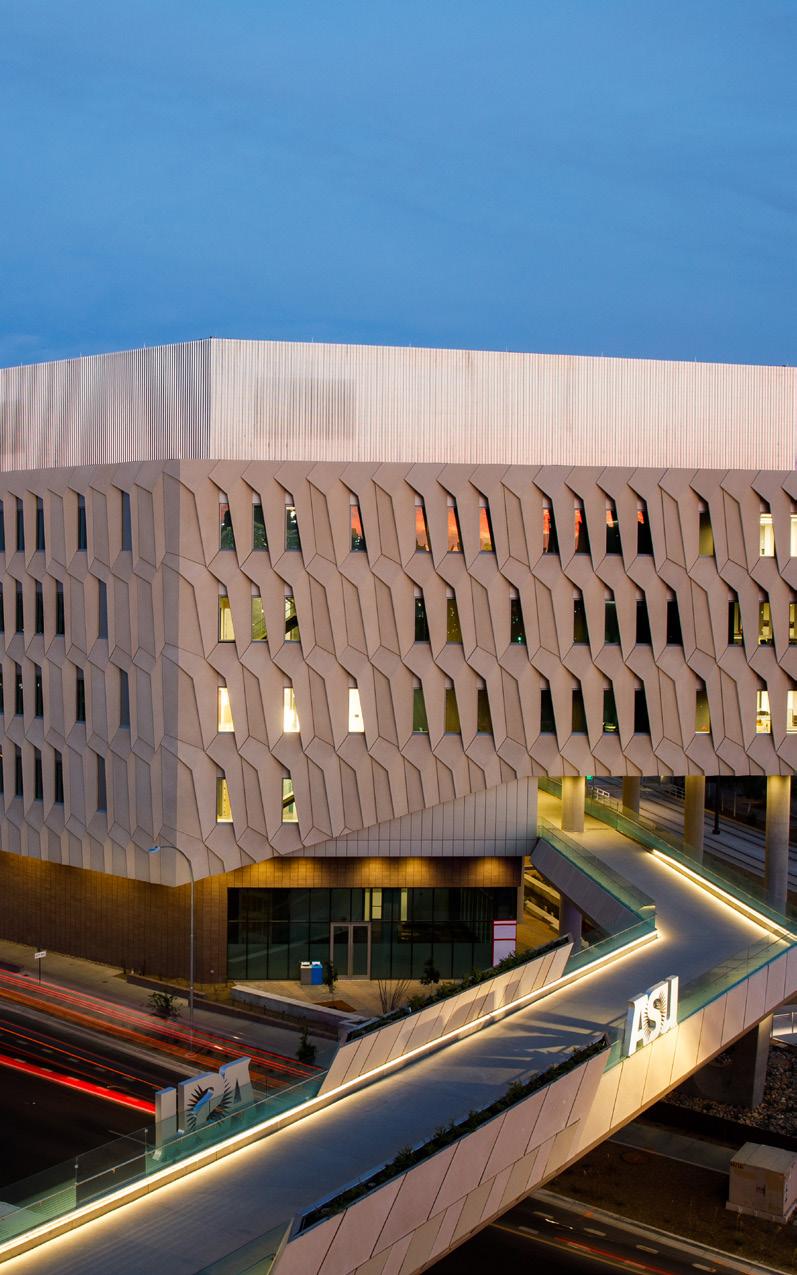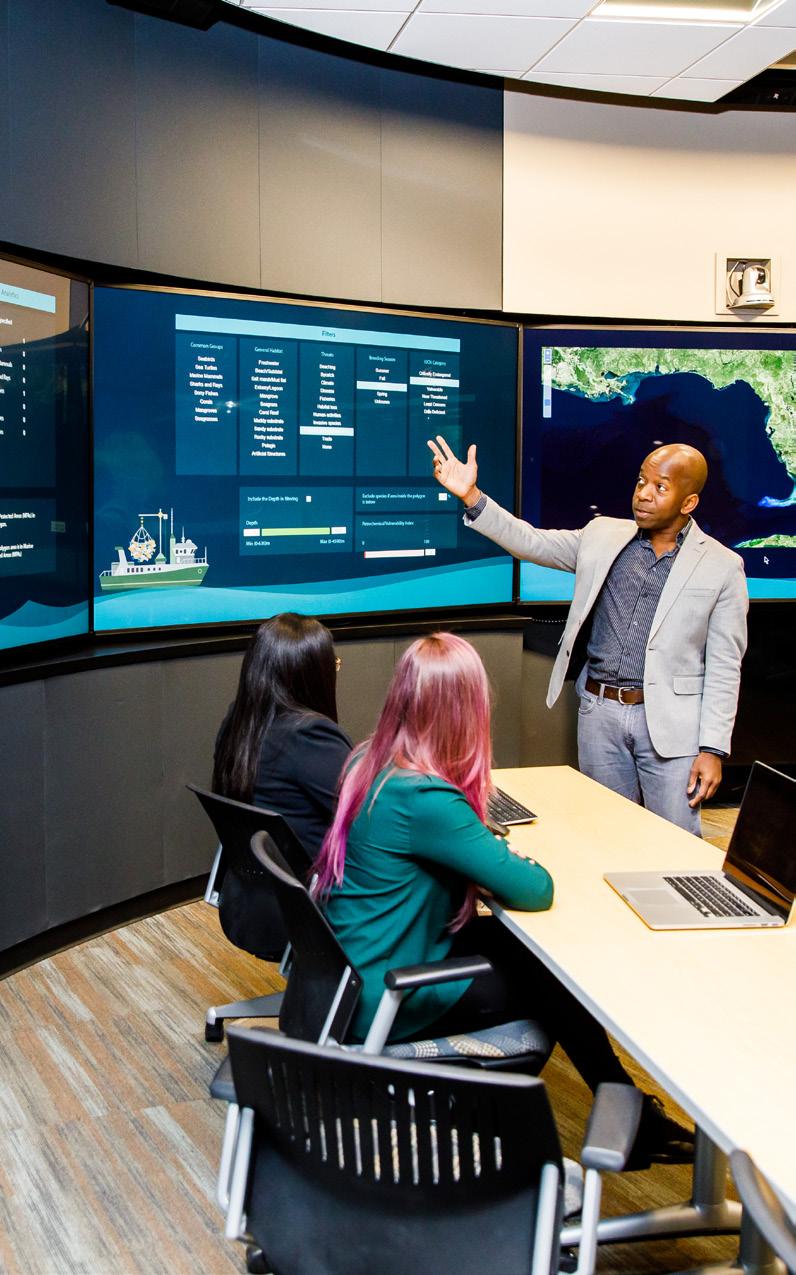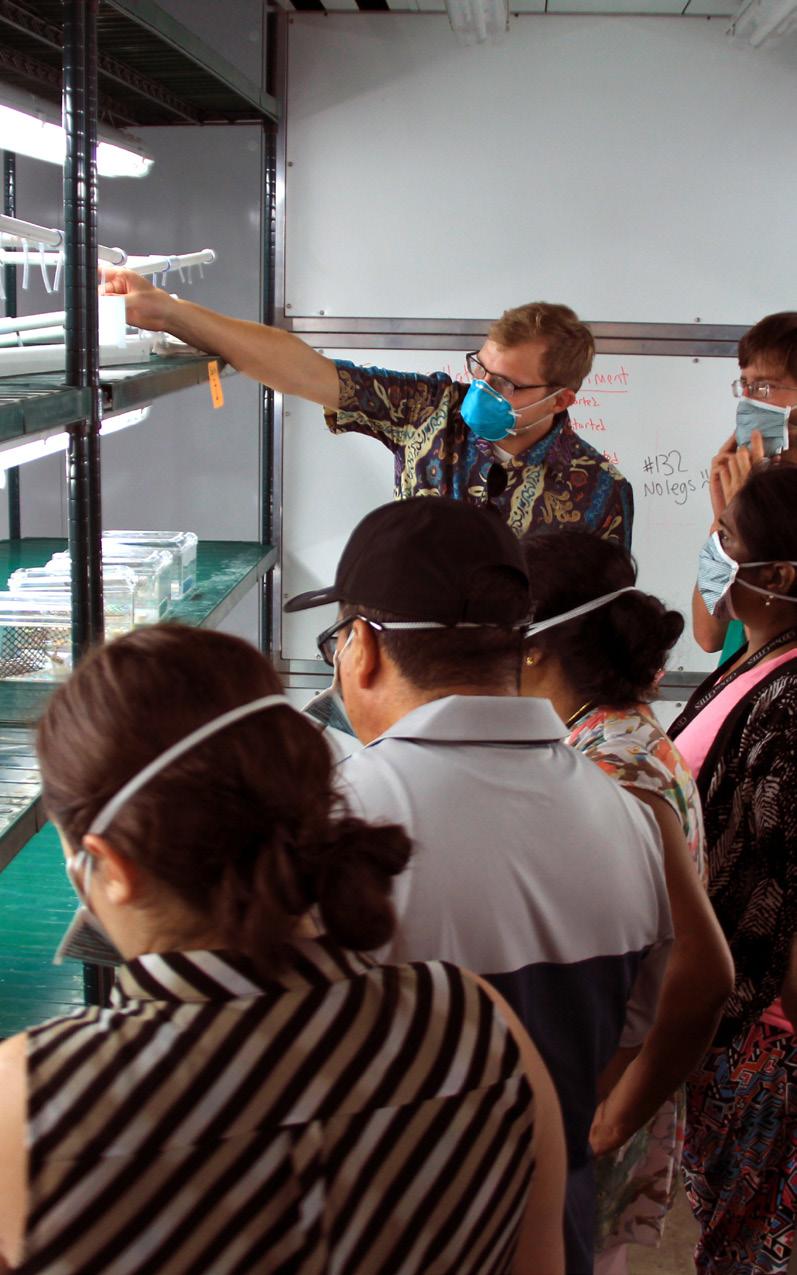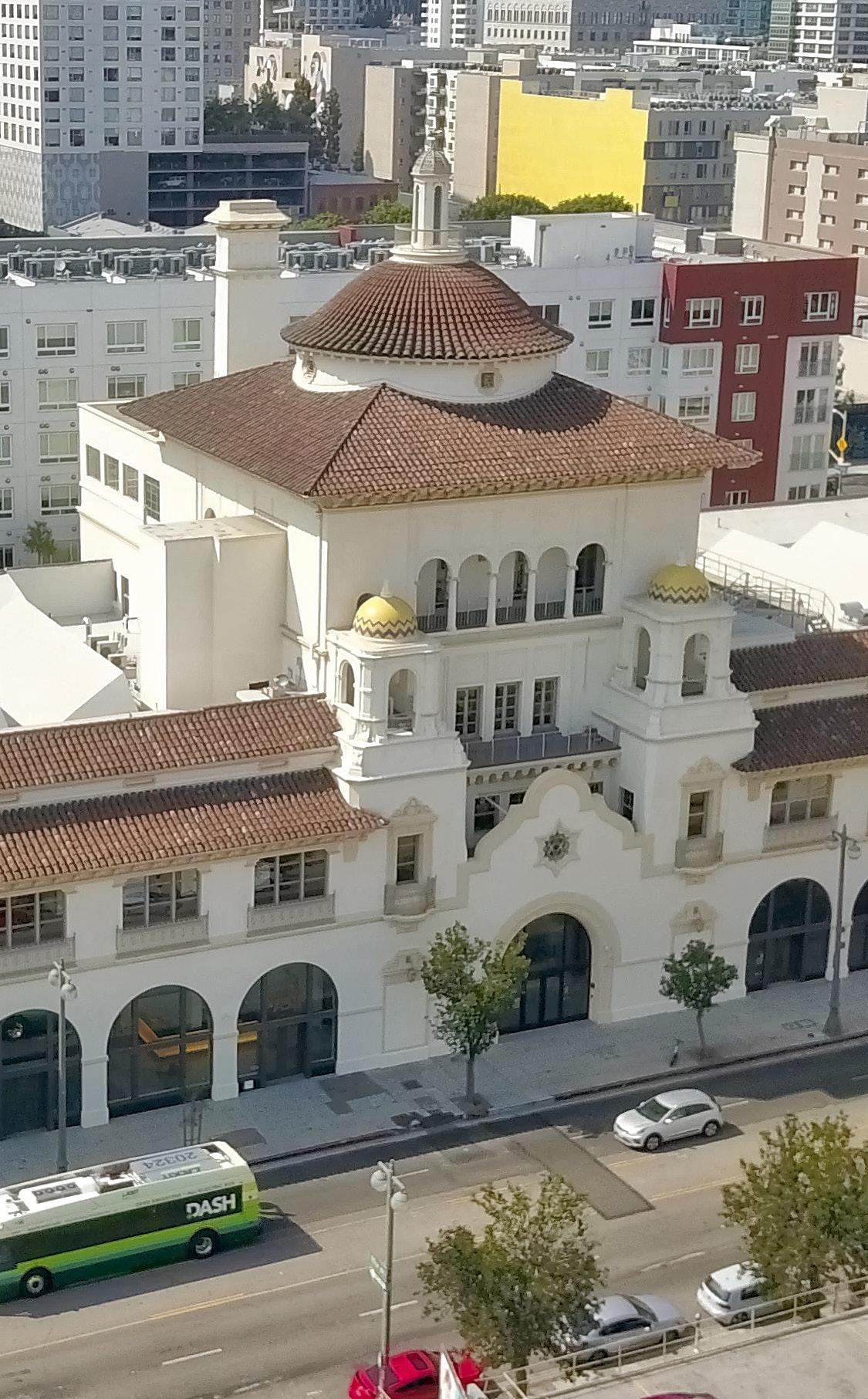
5 minute read
GFL Appendices 2023 - Facilities
Facilities

Rob and Melani Walton Center for Planetary Health
ASU Tempe
The Rob and Melani Walton Center for Planetary Health serves as a new gateway to the Tempe campus at the southwest corner of University Drive and Rural Road. The new, approximately 281,000 gross-square-foot, high-performance research facility fosters an interdisciplinary approach to knowledge generation and leadingedge research, including innovative endeavors focusing on the sustainability of food, water and energy. In addition to public outreach and exhibit spaces, the facility will house Global Futures, the Julie Ann Wrigley Global Institute of Sustainability, the Rob and Melani Walton Sustainability Solutions Service, School of Sustainability, and the Institute of Human Origins. It is on track to meet the specifications for LEED Platinum, the highest standard of green building certification.
https://cfo.asu.edu/ISTB7

ISTBX
ASU Tempe
Home to the School for the Future of Innovation in Society which, conducts research, education, and problem-solving related to sustainability, with a special focus on urban environments. The original home for ASU's sustainability programs, ISTBX holds multiple classrooms, meeting spaces and dry labs for students, faculty, researchers and staff to collaborate on ethical and responsible innovations of the future that benefit society as a whole.
https://cfo.asu.edu/leed-wrigley-hall

Decision Theater
ASU Tempe
The Decision Theater organizes researchers, policymakers and the business community to better understand and explore solutions to complex issues facing society. Using data analytics and high-performance computing to drive softwareintegrated models, DT works with transdisciplinary partners to streamline big data and transform it into novel, interactive data visualizations.
https://dt.asu.edu

Global Locust Initiative Lab
ASU Tempe, Senegal, South America and Australia
The Global Locust Initiative Lab is centered at Arizona State University and leverages state of the art locust rearing facilities and laboratory space. In collaboration with an interdisciplinary team, members of GLI Lab conduct projects on multiple continents to study nutritional ecophysiology, land-use practices, and governance, with a goal of advancing both fundamental research and sustainable solutions to meet the challenge of locust and grasshopper outbreaks.
https://sustainability-innovation.asu.edu/global-locustinitiative/global-locust-initiative-lab/

Media and Immersive eXperience (MIX) Center
Mesa, AZ
ASU at MIX Center is a joint project between the City of Mesa and Arizona State University that will house programs for the School for the Future of the Innovation and Society and the Herberger Institute of Design and the Arts academic programs related to digital and sensory technology, entrepreneurial support, experience design, film production, and immersive media.
https://cfo.asu.edu/MesaCityCenter

ASU California Center
Los Angeles, CA
In California, where ASU has been deeply connected for many years working with educational, non-profit and business partners, the university now has a new home, the ASU California Center in downtown Los Angeles, located at the historic Herald Examiner building. Here, ASU features some of its top-ranked and accredited undergraduate and graduate degree programs and innovative transdisciplinary opportunities to give California students — and those from all of ASU’s campuses — new opportunities to connect with LA and global industries through high-demand jobs and internships. All of this reflects a growing commitment to California in ASU’s mission of providing access to higher education and fulfilling entrepreneurial aspirations.
https://california.asu.edu

ASU Washington, D.C. Center
Washington, D.C.
Having a presence in Washington, D.C. generates attention and interest about Arizona State University on an international platform. It spurs national engagements and partnerships for ASU, provides important and one-of-kind learning, teaching and research opportunities for students and faculty members, facilitates ASU’s participation in highlevel idea exchanges, and expands the reach of groundbreaking research efforts. Scroll down to learn more about why ASU is in Washington, D.C.
https://washingtondc.asu.edu

ASU Hilo
Hilo, Hawai‘i
The Center for Global Discovery and Conservation Science-Hawai‘i is headquartered in the ASU Pacific Ridge-to-Reef Program, located in a joint facility in Hilo, Hawai‘i that is administered by the US Forest Service. The Hilo facility houses computational and chemical labs, offices, conference rooms, and field operations space. GDCS-Hawai‘i is located next door to the University of Hawaii at Hilo, fostering inter-university collaboration across the Hawaiian Islands. GDCS also operates major program elements along the West Hawai‘i Island coastline, including Honokohau Harbor north of KailuaKona and Miloli‘i Village in South Kona District.
https://gdcs.asu.edu/locations

Pacific Regional Integrated Sciences and Assessments Program
Honolulu, Hawai‘i
In parternship with the East-West Center and the University of Hawaii and funded through a grant by NOAA, Pacific RISA serves and studies Pacific island and coastal communities in understanding how they adapt to the impacts of climate variability and change. Our work is conducted through interdisciplinary research and partnerships with local, national, and regional stakeholders. As one of eleven US RISA programs, Pacific RISA emphasizes the engagement of communities, governments, and businesses in developing effective policies to build resilience in key sectors such as water resource management, coastal and marine resources, fisheries, agriculture, tourism, disaster management and public health.
https://www.pacificrisa.org

Bermuda Institute of Ocean Sciences
Bermuda
ASU’s partnership with the Bermuda Institute of Ocean Sciences (BIOS), one of the longest-serving research institutes dedicated to studying ocean processes in the Western Hemisphere, deepens the understanding of the role that the ocean plays in climate science. Together, BIOS and the Global Futures Laboratory shares expertise in ocean sciences to study the highly interlinked, complex problems related to the future of the planet and will put students on the cutting edge of ocean science.
http://www.bios.edu



